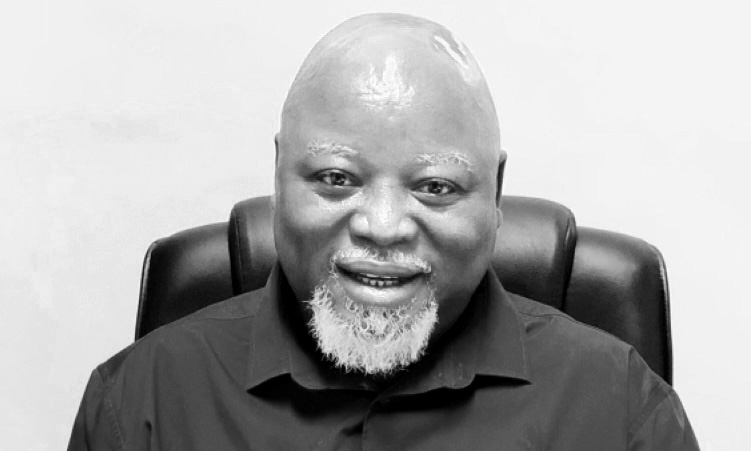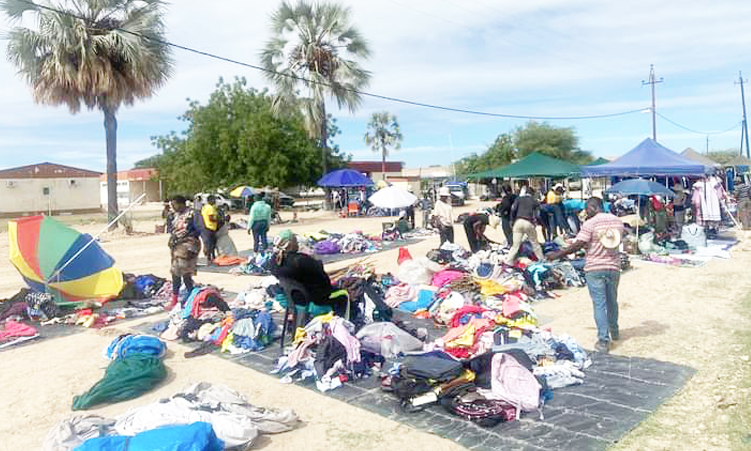…Youth demand for solutions to the unemployment problem
Jobs. The one promise always used to sell political parties’ manifestos to Namibia’s youth.
Yet, the lack of employment is the major issue troubling Laina Erasmus (25). She has been unemployed since she graduated from the International University of Management (IUM) in 2020.
The Namibian caught up with Erasmus at her home at Ekuku, Oshakati, where she shared her struggle to get a job.
“Life is hard without a decent job. I never knew that I would one day finish school, graduate and still be unemployed for such a long time. It is a horrible experience, knowing fully well that you are unable to secure a job and support your family. I cry myself to sleep every night, hoping to get employed one day,” she said.
In the meantime, she has been trying to make a living by doing odd jobs and selling second hand clothing items at the Oshakati Open Market, she added.
Erasmus graduated with a bachelor’s degree in education, however, she has failed to secure permanent employment despite submitting a number of job applications at various schools.
Every morning, Erasmus boards a taxi to the Oshakati Open Market to sell second-hand clothing she imports from Angola.
“I sometimes travel to Angola to purchase my second-hand clothing and I sneak them into the country illegally because I cannot afford to pay the import duty fees at the border. They charge more than what we used to pay for these things.
“So, we sneak into the country through the porous border, which is deadly and risky at the same time. We are doing all this because of unemployment. We have to seek our own means of survival,” she said.
The emotionally frustrated Erasmus shares a one-bedroom flat with a friend because she can’t afford a place of her own.
Dressed in blue overalls and sandals, Erasmus said she sometimes braids people’s hair from home for a small fee to keep her going.
“I am the only breadwinner back at home among my four younger siblings. My mother is unemployed and she sells kapana in the village.
I truly wish to secure employment one day to be able to look after my family. Politicians are promising us jobs if they win elections, which is just another ploy to [get us to] vote for them. I no longer have trust in our politicians, because all they do is tell us lies and more lies. It is tiring,” said Erasmus.
Erasmus hopes the presidential candidates partaking in the upcoming elections tackle the rising issue of high youth unemployment.

RADICAL CHANGE
Speaking to The Namibian, the country’s articulate youth, known as Gen Z, demanded radical change and accountability from their leaders. Gen Z, born between 1997 and 2012, are reshaping the political landscape in Namibia and challenging established norms. They are demanding a different type of engagement from their leaders.
Morning Gabriel (21) from Onawa at Oshakati said as a first-time voter, she expects political party leaders to focus more on youth issues.
“I want party leaders to prioritise youth interests. We demand transparency, accountability and meaningful inclusiveness in the government.”
CHALLENGING ENVIRONMENT
Recently, The Namibian reported that more than 412 applicants applied for one cleaner position at Rudolf Ngondo Primary School at Rundu.
The latest figures from the National Planning Commission indicate that youth unemployment in Namibia is currently at more than 40%, while the overall figure stands at 33.4%.
YOUNG VOTERS’ FRUSTRATIONS
Evelina Nashima, a second-year student at the University of Namibia (Unam) Hifikepunye Pohamba campus at Ongwediva, said most political leaders are more focused on ‘securing the bag’ (making money) than advocating the challenges facing the youth.
Nashima called for the various political parties to publish their manifestos and detail how they plan to solve issues such as high youth unemployment and the high cost of education, among many other challenges.
Unam student Julia Simon (25) echoed these sentiments and called for party leaders to particularly engage the youth in party structures.
“I understand that we are not much vested in politics and we might lack here and there, but the leaders must include us in their activities, so that we gain the much needed experience and understanding. We will not be young forever, one day we will need to take over,” she said.

HEAR OUR DEMANDS
Political analyst Ndumba Kamwanyah says the youth are agitated by their socio-economic situations and want to feel seen and heard by political party leaders.
“They feel their concerns are not heard and they also want to be represented in party structures. From that perspective, we are seeing a lot of them upset and frustrated about their situation. Those concerns coming from young people are important. It’s an opportunity for political parties to connect with young people in terms of their campaigns.”
Kamwanyah says political campaigns should address the youth’s concerns and engage young people more to participate in political party activities.
“Also try putting them in party structures or whatever structures that they can fit in,” he adds.
Kamwanyah believes no political party has aggressively engaged the youth so far.
“Maybe it is because we have not seen any political party manifesto yet, so we can assess how the issue of young people is being addressed by those various political party manifestos. If you want to connect with the youth, you must address their needs and you must meet them where they are. A larger number of them are on social media,” he says.
PENDING PROMISES
Kamati Tuhafeni said political parties’ promises would partly influence his vote.
“My vote in the upcoming elections will be based on the promises by political party leaders and also my own political knowledge. I will wait on the political parties to share their party manifestos and then determine which party to vote for. At the moment, the parties are not doing much. Maybe they feel it’s too early, but I think the earlier the better for us.”
Tuhafeni further said he would also base his vote on the past performance of political parties.
Kamwanyah highlights that young people have a demographic advantage in terms of influencing voting decisions.
“The preliminary survey that was released a few months ago suggests that Namibia is a youthful country, that the youth cohort is larger than any other population. So, that means if they are engaged, they can make a significant change. It is important that young people are engaged, so that they can make a change because they are the larger population.”
Stay informed with The Namibian – your source for credible journalism. Get in-depth reporting and opinions for
only N$85 a month. Invest in journalism, invest in democracy –
Subscribe Now!







